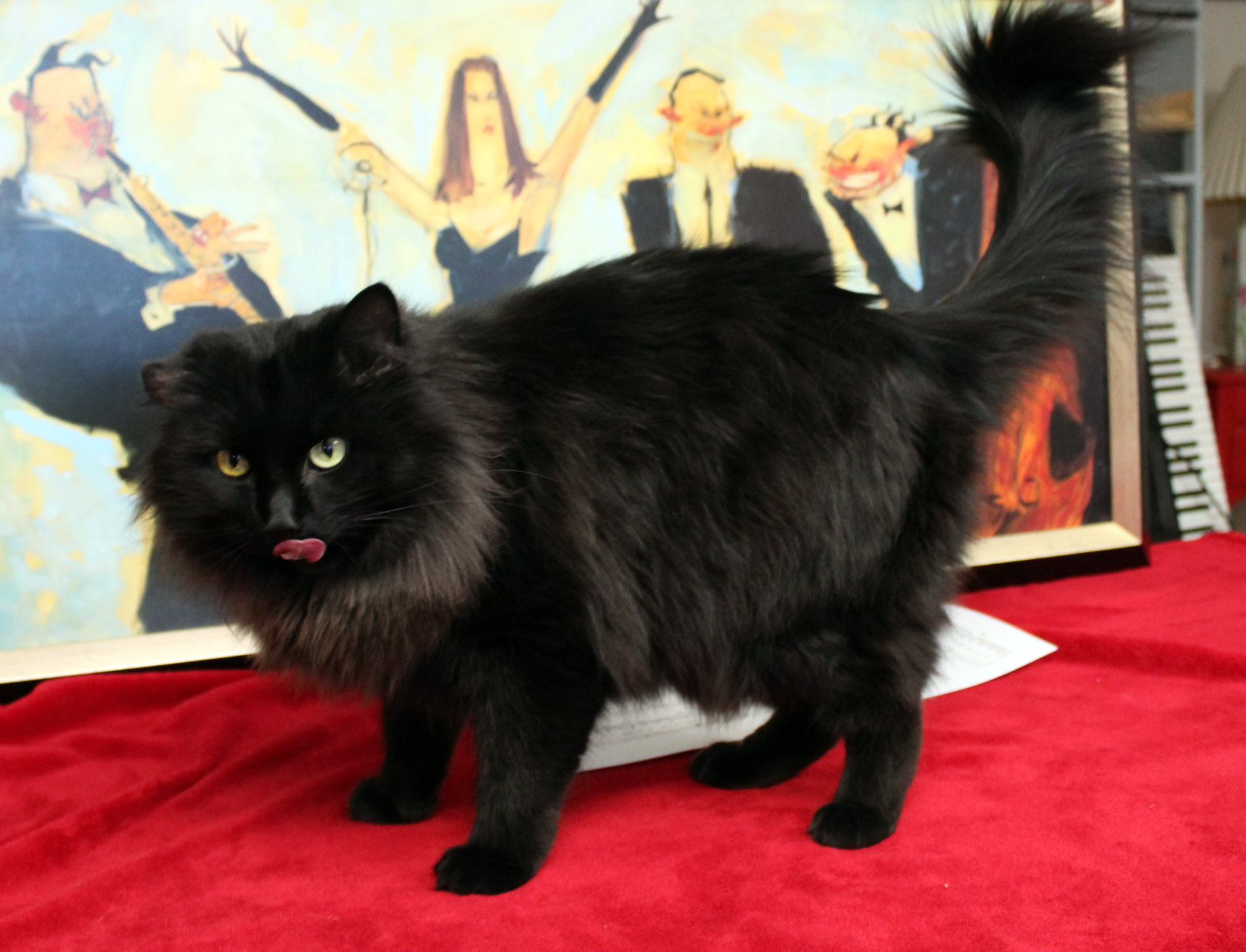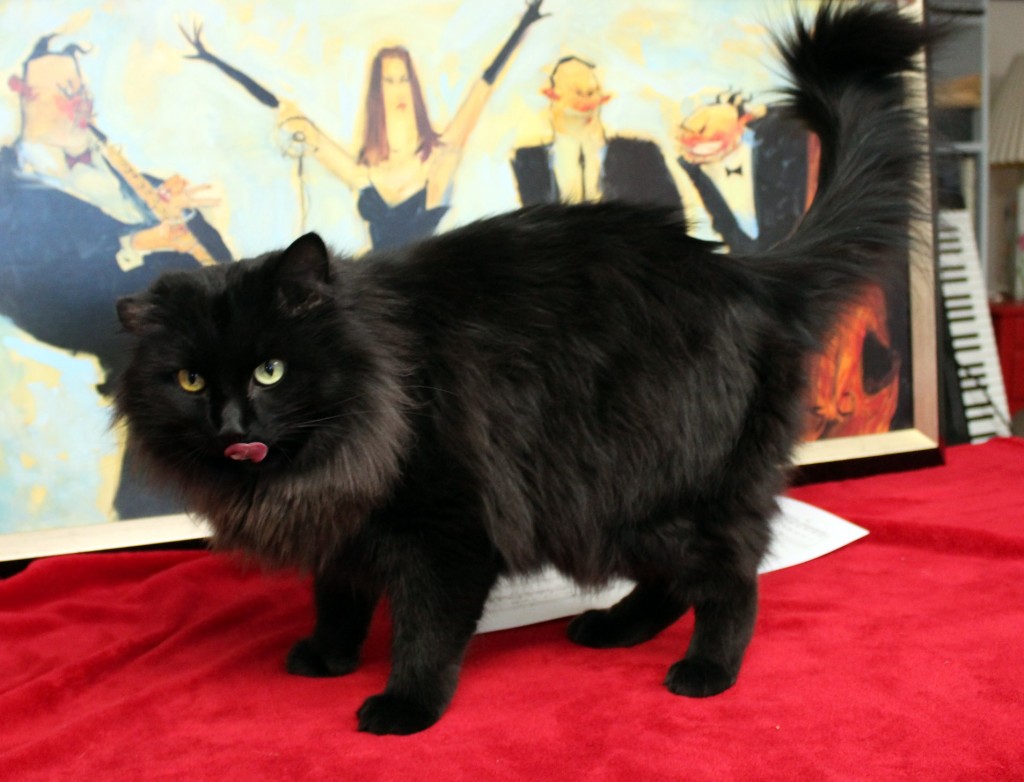Cat immune deficiencies cause concerns


Magic is a kitty with FIV and is one of the sweetest cats around. He loves to be brushed and loves to play.
If you have been around cats for a while, you have probably come into contact with the acronyms FIV and FeLV. But do you know what they are?
They are both viral diseases that a cat can catch, but there are differences between the two, and misconceptions about both. People often fear getting the infection from their cat. Not true. Humans cannot catch these diseases from cats.
FIV
FIV is the term for Feline Immuno-Virus, an immune deficiency. It can be transferred from one cat to another through bites, or the mother cat can pass the virus on to her kittens. It is okay to house multiple cats if they have the FIV virus.
FIV is not the same as kitty AIDS (FAIDS). Feline AIDS is the terminal stage of FIV, which may not occur for many years. A cat may not even show signs of having an illness for some time, and cats can live a long normal life in a healthy low-stress environment. It is hard to predict how your cat will be affected, but you can take steps to provide the healthy life they need. FIV affects 1.5 to 3% of the cats in the U.S.
FeLV
FeLV is the term for Feline Leukemia, also an immune deficiency virus. This disease is passed on to other cats through saliva and urine; so it is spread much faster than FIV. If a cat has the virus he/she can pass it on to other cats that share food, toys and litter boxes, or groom each other. A mother cat with the disease can also pass it on to her babies. It is fine to have several cats together that have the FeLV virus.
Feline leukemia is the most common cause of serious disease in cats. FeLV affects the cat’s body in many ways. It is the most common cause of cancer in cats, and it may cause various blood disorders. It may lead to a state of immune deficiency that hinders the cat’s ability to protect his/herself against other infections. The cat’s own disease-fighting mechanisms have been compromised. A study from 2013 state that 2 to 3 percent of the cats in the U.S. carry the FeLV virus. Eighty-five percent of positive cats die within a few years; however, some have lived for much longer periods.
Pet MD has good information about FIV and FeLV. If you still have questions, talk to your vet.
Your veterinarian can perform a blood test to see if your cat has either of these infections. If you have a cat with one of these viruses:
- Keep them indoors and away from other healthy cats.
- Provide a healthy, clean environment with good food and low stress to help them live a longer life.
- Make sure the cats are free of worms and fleas.
- Get regular veterinary checkups.
- Do not house a FIV cat and a FeLV cat together, as it can complicate their illness since they have compromised immune systems.
- Watch for infections (gums, ears, eyes etc).
- Do not feed your cat uncooked, raw foods, as these foods may harbor bacteria.
Cats cannot be cured from these viruses, but you can make them comfortable. Both of these diseases cause a slow generalized decline in your cat’s health.
Keep Cats Indoors
If you have a healthy cat, you might think twice about letting him/her roam the neighborhood. These diseases—and much worse—are lurking out there. Building a catio is a good idea and will give kitty a safe outdoor space to hang out. And by all means, get your cat vaccinated to help prevent contacting and/or spreading these deadly diseases.

Magnum is a handsome fellow that is also FIV+. He loves to sit on your lap and will follow you around the house. Both Magic and Magnum are available for adoption through Furry Friends www.furryfriendswa.org.
